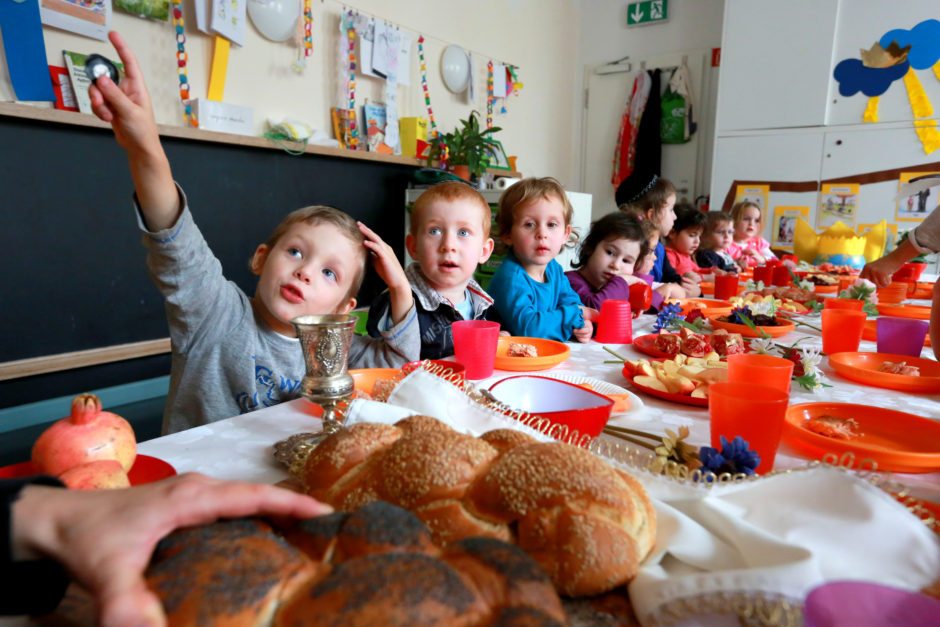Poland has experienced a Jewish revival since the end of the Communist era and the advent of democracy in 1989. And there is no better symbol of that remarkable phenomenon than the Lauder Morasha Middle School in Warsaw, which is marking its 22nd anniversary this year.
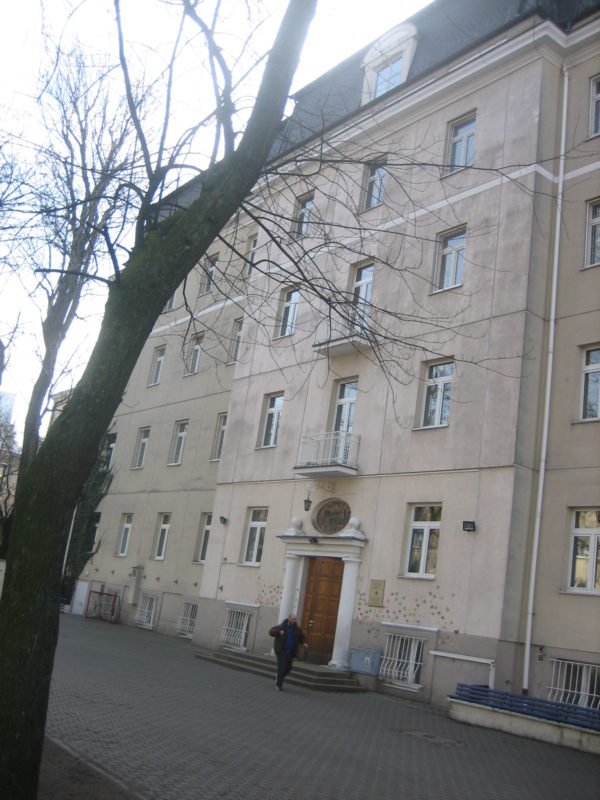
Although it’s generously supported by grants from the Ronald S. Lauder Foundation and the Warsaw municipality, it levies a tuition fee of $4,000 per student per year to sustain itself financially.
Part of a network of Lauder-financed Jewish schools and summer camps in Poland, it has an enrollment of 240 students from the ages of three to 16 and a staff of 80, 50 of whom are teachers.
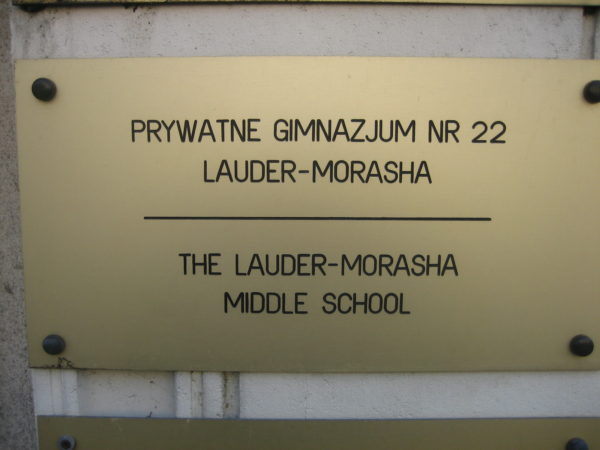
The school, housed in a pre-war Jewish seniors’ home, was opened in 1994 in the presence of Warsaw’s mayor and Poland’s prime minister, who described it as “magnificent proof” of the resurgence of Jewish life in Poland. In 1939, Poland’s Jewish population was 3.3 million, compared to about 7,000 today. (The unofficial figure may be much higher).
“No one knew whether the school would grow,” said Maciej Pawlak, the school’s director, in an interview in Warsaw in mid-March. “But I’m glad to say it’s been successful.”
Warsaw’s only Jewish day school, it began as kindergarten in 1989 with a handful of students, evolved into an elementary school with 17 first graders and morphed into what it is today — a full-service institution which offers a secular curriculum and a menu of Jewish studies courses and Hebrew language instruction, all accredited by Poland’s Ministry of Education.
Of late, the school has offered on-line courses to students living in other towns and cities in Poland.
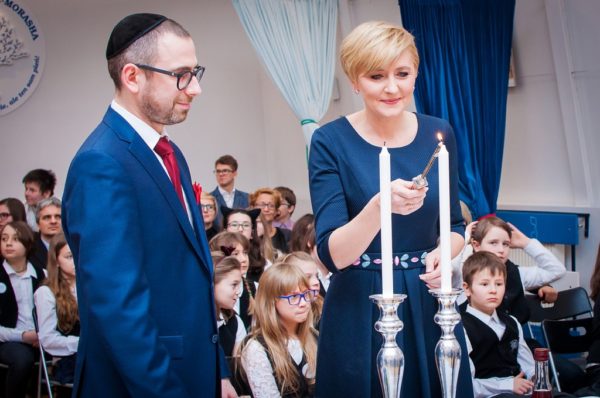
Such is the school’s reputation that it gets a steady stream of visitors. This past winter, Agata Duda, the wife of Poland’s president, paid a courtesy call and lit sabbath candles.
Pawlak, the first Polish citizen since the Holocaust to be ordained as a rabbi who still lives in Poland, said that a small proportion of its student body is Catholic. He suspects that Christian parents who send their kids to his school do not want them to be exposed to Catholic liturgy.
The vast majority of the school’s graduates go on to university and remain in Poland, said Pawlak, who has been its director for the past decade. A few graduates have immigrated to Israel.
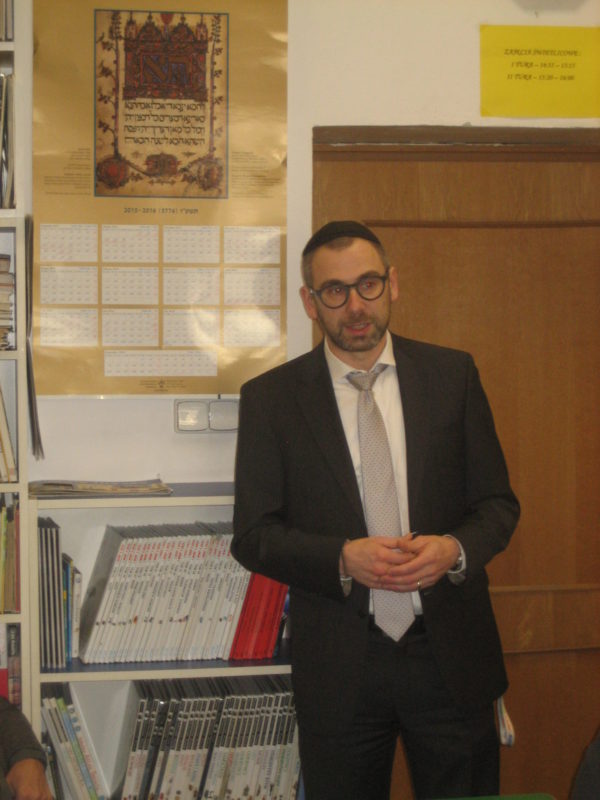
Pawlak, 39, was born in Szezecin, in northwestern Poland, and was raised in a thoroughly secular milieu by his father, Zbigniew, and his mother, Alina. “There was basically no religion in my home,” he recalled. “My family story is similar to many other family stories in Poland. I know many people like myself.”
His mother also told him that his late maternal grandparents had escaped from the Nazi ghetto in Warsaw, and that his father’s family had sought refuge in the Soviet Union during World War II.
In 1992, his parents sent him to a Lauder summer camp in southern Poland to explore Judaism. “I knew zero about Judaism when I went there. I made many friends and returned to the camp in the following year.”
He also visited the synagogue in Szezecin, whose Jewish population stood at about 30 as of a few years ago.
After graduating from high school, he studied at a yeshiva in Israel. “My parents were supportive. They understood I was doing something I wanted.
Returning to Poland, he took business courses in a Warsaw college.
With the support of the Memorial Foundation for Jewish Culture and the encouragement of Poland’s chief rabbi, Michael Schudrich, he continued his Jewish studies in New York City.
He accepted the job at the Lauder Morasha School out of a sense of purpose and responsibility.”I really wanted to do something for the Jewish community, which has changed since I was a boy,” he said.
Pawlak cannot ordain the future, but he intends to stay in Poland and continue working for the school. “Many people are surprised that there is something going on Jewishly in Poland,” he said.
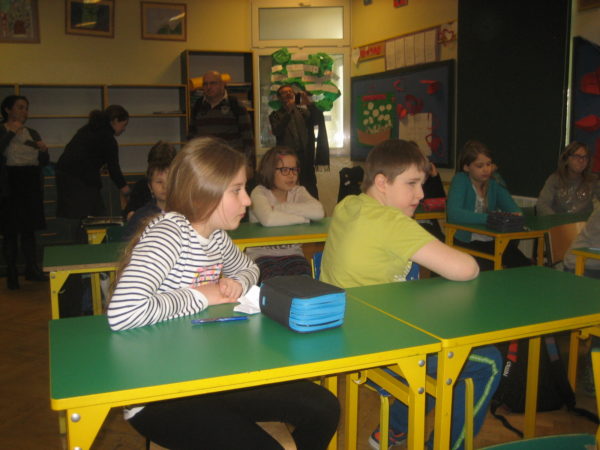
But they shouldn’t be surprised, he said.
Poland has evolved in the past generation, as has its Jewish community.
